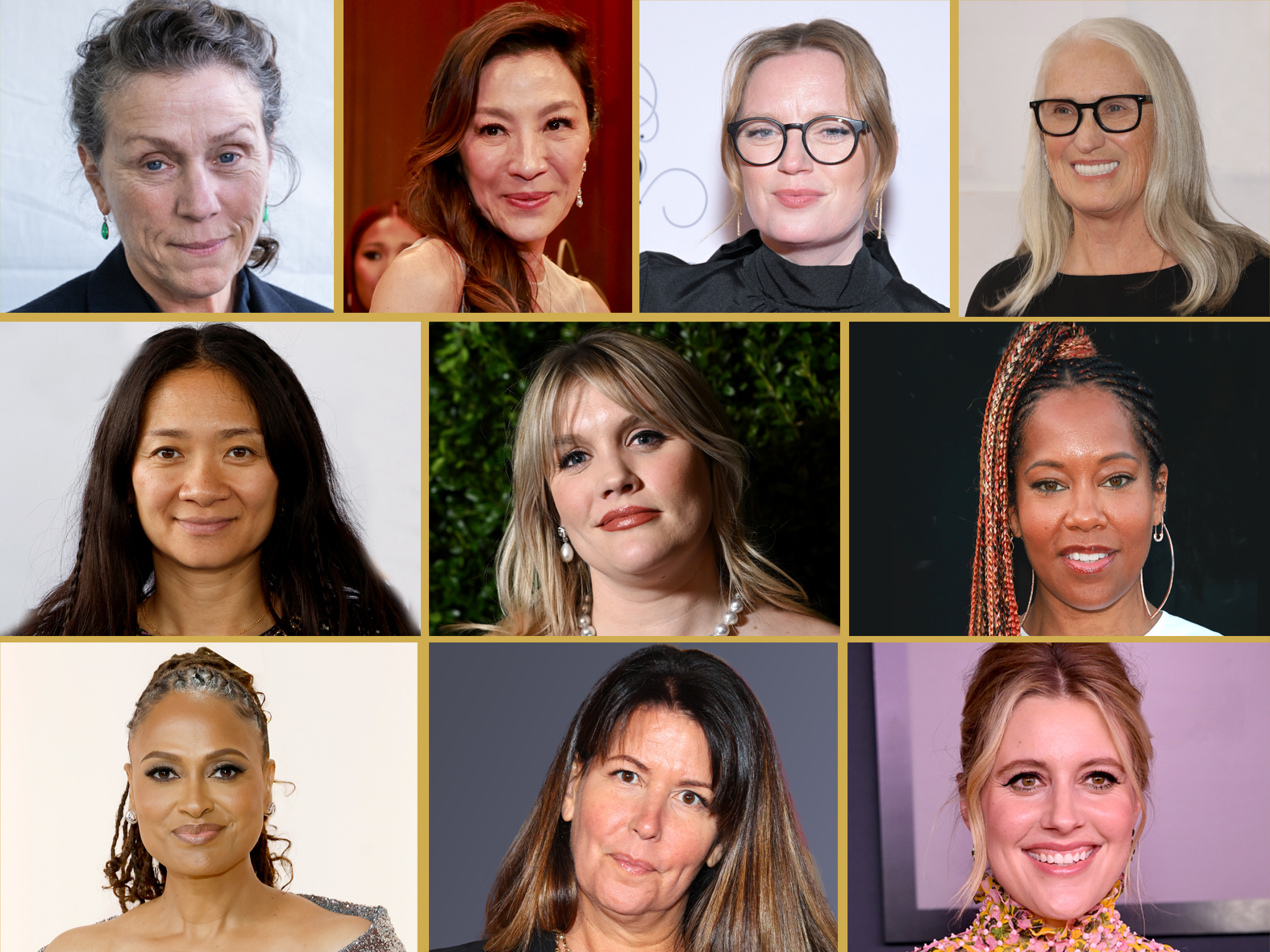
- Industry
Women in Hollywood Making Strides
It’s been a long time coming, but lately women have stepped up to the plate and become major players in front of and behind the camera. Women are no longer invisible, and the growing trend in recent years is of women in Hollywood gaining more opportunities not only as actors but in careers which include such positions as directors, writers, producers, cinematographers and editors. There has been a greater recognition of the need for diversity and inclusion in the film industry, brilliantly articulated by Frances McDormand during her 2018 Best Actress Oscar acceptance speech (for Three Billboards Outside Ebbing, Missouri) when she referred to the inclusion rider, a clause that actors and filmmakers can use to require diversity in casting and production staff. And evidently, Hollywood listened.
This year, Michelle Yeoh made history as the first Asian woman ever to win a Best Actress Oscar (for her role in Everything, Everywhere All at Once) since the first Academy Awards ceremony in 1929. She had already won Best Actress in a Musical/Comedy – Motion Picture at the Golden Globes. The former Bond actress addressed the obstacle of being a woman of color during her acceptance speech at the Golden Globes: “I remember when I first came to Hollywood, it was a dream come true until I got here. Because, look at this face, I came here and was told, ‘You’re a minority.’ And I’m like, ‘No, that’s not possible.’” Several weeks later, when she returned to the podium, this time at the Academy Awards, to accept her trophy, she addressed ageism and said, “Ladies, don’t let anybody tell you, you are ever past your prime.”
This year also saw Canadian actress turned writer-director Sarah Polley (Take This Waltz, Away from Her), earning an Academy Award for Best Adapted Screenplay for Women Talking, for which she also garnered a Golden Globe nomination for Best Screenplay. And though she was snubbed at this year’s Oscars in the directing category – which included only men – the film scored a Best Picture nod, too. As she stepped onto the stage to receive her Oscar, she joked, “I just want to thank the Academy for not being mortally offended by the words ‘Women’ and ‘Talking’ so close together like that.”
Other notable examples of women making strides in Hollywood have included that of New Zealand filmmaker Jane Campion, whose most recent work, The Power of the Dog, took over award season in 2022, winning an Oscar for Best Director and nominations for Best Screenplay and Best Picture. She also took home two Golden Globes for Best Director and Best Motion Picture – Drama at the Golden Globes last year.
Other achievements by formidable women have included:
Chloé Zhao became the first woman of color to win the Best Director Oscar for her film Nomadland in 2021. She also won Golden Globes for Best Picture and Best Director.
Emerald Fennell won the Best Original Screenplay Oscar for her film Promising Young Woman in 2021. She also earned three Golden Globe nods for Best Director, Best Screenplay, and Best Motion Picture – Drama.
Regina King was nominated for the Golden Globe for Best Director for her film One Night in Miami in 2021.
Ava DuVernay has directed films such as Selma (2014) when she became the first African-American woman to be nominated for a Golden Globe for Best Director and subsequently garnered a nod for Best Picture at the Oscars. She made history with A Wrinkle in Time (2018) which made her the first African-American woman to direct a film with a budget of $100 million. Other credits include the TV series Queen Sugar (2016) and When They See Us (2019).
Patty Jenkins directed Monster (2003), Wonder Woman (2017), and its sequel, Wonder Woman 1984, (2020)
Greta Gerwig won a Best Actress nod at the Golden Globes for the film Frances Ha in 2014, and another nomination in 2018 for Best Screenplay Motion Picture for Lady Bird.
That film also earned her a Best Original Screenplay and Best Director nod at the Academy Awards; in 2020 she earned another Oscar nomination for Best Adapted Screenplay for Little Women.
It would appear that Hollywood has taken notice of such issues as racism and ageism when it applies to women. While there is still much work to be done to address the systemic issues that have led to under-representation and lack of opportunities in the past, there are positive signs of progress for the future.